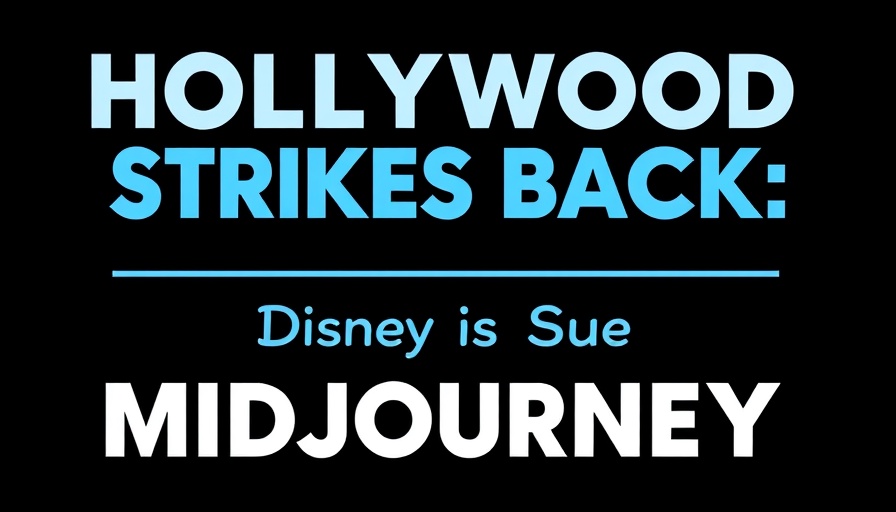
AI Content Creation Faces Legal Reckoning
The recent lawsuit against Midjourney by Disney and NBCUniversal marks a pivotal moment in the intersection of artificial intelligence and copyright law. With both content creation and consumption evolving due to advancements in AI, this legal action swirls around a fundamental question: who holds ownership over AI-generated content that is inspired by existing, copyrighted material?
Understanding the Lawsuit: Main Claims
The 110-page lawsuit, filed in California, claims that Midjourney's AI has unlawfully used copyrighted images to train its algorithms. Disney and NBCUniversal assert that the program was trained on their creative works, which include iconic characters like Elsa and Buzz Lightyear. In striking detail, the lawsuit showcases AI-generated images that closely mirror beloved cinematic scenes, prompting fears over widespread copyright infringement that could transform the generative AI landscape.
The Stakes of the Lawsuit
This lawsuit could set a precedent for the entire AI industry. While past lawsuits in this domain have occurred, the involvement of towering entertainment giants like Disney and NBCUniversal signals a new level of seriousness regarding AI copyright violations. As highlighted by legal experts, this could compel AI companies to reassess how they handle intellectual property rights and possibly create frameworks for lawful content creation.
Why Now? A Shift in Industry Dynamics
As industry observers note, the growing frustration among traditional content creators with the AI software community has culminated in this lawsuit. The feeling of infringement coupled with past failed attempts to negotiate licensing agreements may have catalyzed these studios to take legal action. Midjourney, being a smaller player, becomes an easier target compared to tech behemoths like OpenAI, which can afford lengthy legal battles—not to mention that many AI companies utilize proprietary data without regard for copyright issues.
Legal Implications and Future Predictions
This lawsuit not only threatens the operation of Midjourney but could reverberate throughout the tech ecosystem. As Disney General Counsel Horacio Gutierrez noted, "Piracy is piracy, and the involvement of AI does not diminish its infringing nature." Furthermore, if the courts rule in favor of the established studios, a ripple effect may compel other generative AI platforms to rethink their training methods and possibly rack up licensing fees previously deemed too expensive.
A Path Forward for AI Companies
In light of these developments, what options do AI companies have? Experts suggest that engagement with copyright holders should be prioritized rather than ignoring cease-and-desist notices. Finding avenues for licensing agreements could pave the way for shared success, while also safeguarding original creators’ rights. Such collaborations might lead to a more ethical and collaborative ecosystem where both AI technology and creative industries can thrive in the digital age.
Conclusion: The Beginning of a New Era
As the lawsuit proceeds, the stakes for both creative content owners and AI developers are higher than ever. The outcome could define the operational parameters of AI-generated content and make evident the responsibilities that come with rapidly developing technology. As we continue to navigate this evolving landscape, it remains crucial for all stakeholders involved—creators, companies, and consumers—to engage in this pivotal conversation about copyright and innovation.



Write A Comment